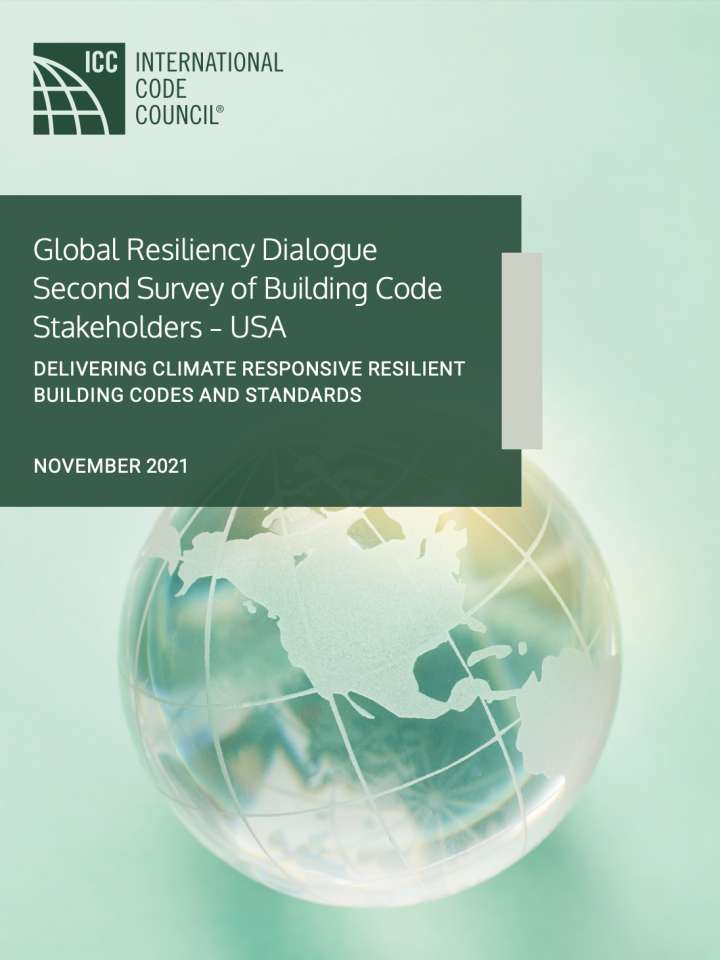Delivering climate responsive resilient building codes and standards: USA
This work identifies strategies and research needs to effectively address evolving climate risks in codes and standards. In January 2021, the Global Resiliency Dialogue published findings of its first international survey in the report, The Use of Climate Data and Assessment of Extreme Weather Event Risks in Building Codes around the World. This report is based on a second international survey to capture feedback on current barriers and potential strategies to incorporate future-focused climate science and risk in building codes and standards, representing the viewpoints of U.S. building sector stakeholders. This report explores the drivers that have the potential to push beyond the barriers to recognize the benefits of resilient building codes and standards, with special focus on the U.S. entities leading the path forward in addressing the resiliency of buildings to extreme weather events. The report also highlights New York City as a model case study to inform the use of forward-looking climate projections in building codes and standards.
Survey results highlight the need for an authoritative source to guide building owners and designers in translating their risks into concrete adaptation strategies. Building owners and designers recognize the uncertainty and the numerous strategies to address future climate risks that are currently used. Stakeholder responses alluded that building owners and designers are seeking an authoritative source to cut through that confusion and provide clear direction. The survey responses concluded that uncertainties of projecting future risk have empowered a business-as-usual mindset, limiting the application of available climate data to proactively incorporate future-looking risk into building codes. There is a sense that climate scientists and the developers of building codes and standards need to agree upon a path and just do it, with the anticipation that the future-looking science will need to be recalibrated regularly as the codes are updated.
Explore further
